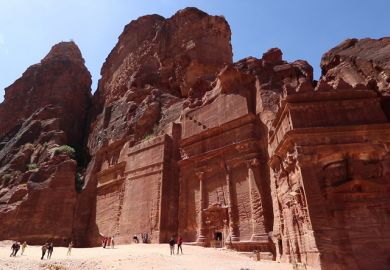Over the past generation, theoretical archaeology has had what might, not withstanding the bad pun, be termed a field day. The "new" archaeology came and partly went, and some academic syllabuses applied themselves increasingly to theories and hypotheses rather than to the mundane details of artefacts, excavations and chronologies. The paradox inherent in most discussions of theory is that the subject can rapidly become self-defining, not to mention self-regarding. Serious points about the nature and purpose of archaeology may need to be made, but they can often be better made when anchored to real facts about real cultures. Lynn Meskell's Private Life in New Kingdom Egypt is a happy example of a synthesis of factual knowledge and theoretical questioning. It has much to say, both about a particular and well-documented society and about the nature of the suppositions that a modern scholar needs to bring to such a society to make sense of it.
There are more than a few books that deal with everyday life in ancient Egypt, since the archaeological evidence that survives is plentiful and there is a ready audience. However, Meskell is attempting something different. Her themes are personal relationships, gender, birth and death, and she concentrates on the material that has been preserved from two New Kingdom sites: the workmen's village at Deir el-Medina, and Amarna, the short-lived capital of the heretic Pharaoh Akhenaten. (The period in question covers c. 1350-1200BC.) The New Kingdom is popular, and there are several other studies on the market, but what makes this book distinctive is the attempt to go beyond the evidence and assess the underlying reality.
Homosexual relationships, for example, are not presented favourably in ancient Egyptian texts, and these texts presumably reflect the prevailing view of those who wrote them. But was reality more tolerant, and were there ways in which theory and practical experience had learnt to coexist? Conversely, most textbooks emphasise the comparatively favourable status given to women in Egyptian family law.
This may well have been the way the Egyptians chose to represent their own society to themselves, but does the archaeological reality - for example the very small number of tombs assigned to women alone - bear out such a liberal picture? What are we to make of the fact that, as far as we can determine, four times as many divorces in ancient Egypt were initiated by men compared with those brought by their womenfolk? How much money was spent on the burials of women and children, and to what extent can this question be answered from the papyri or the tomb assemblages that have survived? Does expense automatically equate to affection? Traditional views of pre-industrial societies often maintain that no great consequence was attached to the deaths of children: such things were routine, and parents could not afford to sentimentalise or grieve in such cases. Egyptian literature does not bear out this unfeeling view, and it implies that the grief felt was genuine and worthy of expression. But to what extent is that literature itself sentimental, an armchair substitute for genuine concern?
The writing of history has no less a shifting perspective than the theory of relativity - as much depends on the viewpoint of the observer as on the observed background. Modern archaeologists are skilled at debunking the prejudices of earlier generations, whether these be male oriented, Eurocentric, Judaeo-Christian, text snobbish or whatever. The problem lies in spotting the drawbacks and inconsistencies in the assumptions that are brought in to replace them. It is extremely easy to recast the ancient Egyptians as East-coast liberals or postmodern multiculturals. It is greatly to Meskell's credit that she avoids the temptation to import whole belief systems from contemporary sociology. She is reluctant to marry outright the spirit of the age, and as a result she is less likely to find herself a conceptual widow in the next.
There are parts of Private Life in New Kingdom Egypt that will date as axioms change, and there will be others overtaken by archaeological progress. Some assumptions, such as the link between conspicuous burials and affection, deserve more questioning than they get. But the book brings together an impressive range of material, sets this material sensibly in context and uses the testimony of an ancient society to remind us what it is to be human, and how life's challenges and limitations need to be met. It deserves to be studied, not merely by Egyptologists and ancient historians, but by anthropologists and others whose interests are focused on the contemporary world.
John Ray is reader in Egyptology, University of Cambridge.
Private Life in New Kingdom Egypt
Author - Lynn Meskell
ISBN - 0 691 00448 X
Publisher - Princeton University Press
Price - £24.95
Pages - 238
Register to continue
Why register?
- Registration is free and only takes a moment
- Once registered, you can read 3 articles a month
- Sign up for our newsletter
Subscribe
Or subscribe for unlimited access to:
- Unlimited access to news, views, insights & reviews
- Digital editions
- Digital access to THE’s university and college rankings analysis
Already registered or a current subscriber?



